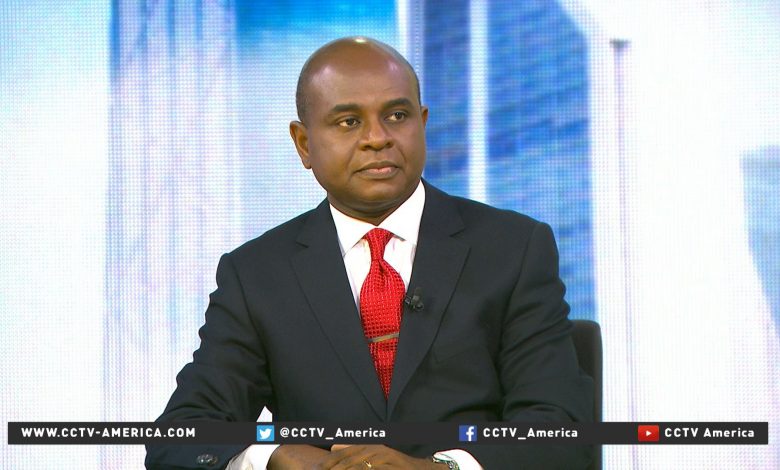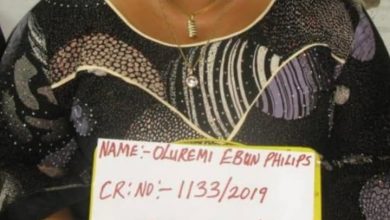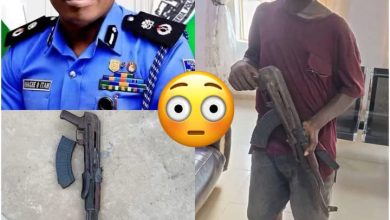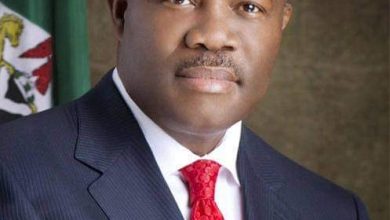
By Kingsley Moghalu
The time has therefore arrived for Nigeria to be led by a lettered man or woman, a philosopher-king.
I am a thinker and a doer combined. If you can’t think it (transformation), you can’t do it. If you can’t conceptualise it, you can’t execute it. There is no “practical” that can work without a sound theory or concept. Nigeria simply can’t be transformed without a leader with a powerful worldview anchored on sound intellect and strong political will to drive the vision. I am a Lee Kwan Yew from Nnewi.
As recently as seven to eight years ago, I would have reacted with disdain and disgust if anyone had suggested that I would ever enter the murky waters of Nigerian politics. But some things made me change my mind and to realise that there’s no other place to make the real change we want to happen.
First, I find the level of poverty in Nigeria heartbreaking. Why, I ask myself, should a country with so much potential be so poor? Answer: Because it suffers from a lethal combination of incompetent governance, industrial scale corruption and willful mis-governance.
Sometime in 2017, I delivered a lecture at the Nigerian Institute of International Affairs (NIIA) in Lagos. After the lecture, people surrounded me expressing appreciation for the insights the lecture gave them. But several people, thereafter, including an old friend who was decidedly a university educated middle-class individual in the 1980s and 90s, were begging me for transport money to get to different parts of Lagos. This was a painful experience for me.
Second, I know from experience, having been a top technocrat, that technocrats can’t make any country achieve progress. Countries make progress only when they have competent political leaders and strong, effective institutions. As such, having brilliant technocrats is not the answer. Nigeria has tons of brilliant economists but our economy is heading to Venezuela and Zimbabwe (diesel is now around N600 a litre).
Lamido Sanusi, I and our other colleagues ran a transformational, high-achieving Central Bank of Nigeria (CBN) from 2009-2014 because we asserted and protected the statutory independence of the Bank and had the capacity and competence to do the things we did in the financial/ payment/monetary systems. That was an exception to the norm in Nigeria.
The great, Amazonian Ngozi Okonjo-Iweala also made a lot of progress with fiscal reforms, but she was blocked by politics and politicians from doing even more. She did not have the statutory independence of the CBN. That’s why, though she was minister of Finance, she was never in effective charge of Nigeria’s oil revenues. As I told her a few years later at a meeting in Washington D.C., after we had both left the government, “Sis, you were the Coordinating Minister of the Economy by day but not at night”!
…I am in politics because ideas matter. Ideas rule the world. We need to educate our citizens, whose minds have been twisted by our corrupt, wicked politicians and the poverty they inflict on citizens so they can buy their votes, that every society that makes progress is one led by political leaders who have and are comfortable with ideas and the intellect.
In other words, the failures and shortcomings of the elected political leadership constrained what could have been achieved. This realisation also made me enter politics and seek the presidency in 2019 and, again and ongoing, in 2023. No retreat. No surrender. We press forward.
Third, I entered politics because of the increasing joblessness and hopelessness of the Nigerian youth. The young people of any country are its future. If they have no future, then the country, in reality, has none. We must change this, working with teams of like minds. I have children too who are young adults and teenagers. I want them too to have a future in our country. And I want to help build an education system that gives millions of our youth the opportunity I have been blessed to equip my own children with, because I had an international career in the United Nations system, earned my salary in dollars, and lived in various advanced countries, where they were born and grew up.
If it’s good for the goose, then it’s good for the gander. This calls for reshaping our education system to face technology, give the young ones skills and access to finance to create their own businesses and therefore jobs for themselves and others.
Fourth, I am in politics because ideas matter. Ideas rule the world. We need to educate our citizens, whose minds have been twisted by our corrupt, wicked politicians and the poverty they inflict on citizens so they can buy their votes, that every society that makes progress is one led by political leaders who have and are comfortable with ideas and the intellect.
Japan, China, UAE, and the USA were not built by Nigeria-like politicians who dismiss the intellect as “blowing grammar”. The politicians in these successful countries lead through vision and win elections via th contests of ideas about how to achieve human progress, not just by worshiping corrupt “structures” that serve the interests of politicians to rig/win elections but not good governance for the people.
The time has therefore arrived for Nigeria to be led by a lettered man or woman, a philosopher-king in the mould of the Azikiwes, Awolowos, Aminu Kanos, Alex Ekwuemes of our distant past before politics became almost the exclusive preserve of “barbarians”. These men (mostly) are worshiped by those whose thinking processes they have corrupted into becoming willing accomplices in what Paulo Freire called “The Pedagogy of the Oppressed” or, in other words, “happy slaves”.
… I entered politics because Nigeria is now broken by our ethnic and religious divides. We have had a country for 60 years but have not been able to build a nation. This requires a national leader with a clear worldview of unity in diversity through justice and equity to all Nigerians and all groups within Nigeria – a unifier. A leader who can create – and inspire Nigerians with – a national goal or ambition that rises above the issues that tend to divide us.
I am a thinker and a doer combined. If you can’t think it (transformation), you can’t do it. If you can’t conceptualise it, you can’t execute it. There is no “practical” that can work without a sound theory or concept. Nigeria simply can’t be transformed without a leader with a powerful worldview anchored on sound intellect and strong political will to drive the vision. I am a Lee Kwan Yew from Nnewi. And to transplant an Igbo saying literally into English, as was Chinua Achebe’s literary habit, “No one will steal my bicycle because I said so”.
Fifth, I entered politics because Nigeria is now broken by our ethnic and religious divides. We have had a country for 60 years but have not been able to build a nation. This requires a national leader with a clear worldview of unity in diversity through justice and equity to all Nigerians and all groups within Nigeria – a unifier. A leader who can create – and inspire Nigerians with – a national goal or ambition that rises above the issues that tend to divide us. A vision that does for our peaceful coexistence, for our economy and our international relations what soccer does for us, making constant the fleeting moments when we forget our tribe and tongue. I am a nation-builder with a worldview of transformation who has played key roles in nation-building in the UN Service, from Cambodia to Angola, from Rwanda to Croatia.
Finally, I entered the political terrain because for me it’s simply the last bus stop. I realised that I don’t care for personal success anymore. I’ve had more than my fair share by the Grace of God. “Vanity of vanities”, saith the preacher in the Biblical Book of Ecclesiastes, “all is vanity”. What matters most to me now, as always, is to change my environment and make it better than it was before I entered it, for the sake of others and not just for myself.
There is no other way to change the destiny of our 200 million people, nearly 70 per cent of whom are youth, other than through getting involved in politics. That means participation through membership of political parties, voting for the right kinds of leaders at every level, and running for office. That means not just me, but you as well. The challenge we face, and I and other like-minds are working on, is a strategy to translate all this into a winning electoral formula at the polls.
So you see, I am practical too. It’s just that my practical plans are based on a sound conceptual foundation, for that’s what guarantees not just short-term electoral victory, but longer-term good governance for Nigeria and Nigerians too.
Kingsley Moghalu, a former Deputy Governor of the Central Bank of Nigeria, was a presidential candidate in 2019 and is a presidential aspirant of the African Democratic Congress (ADC) for 2023.




